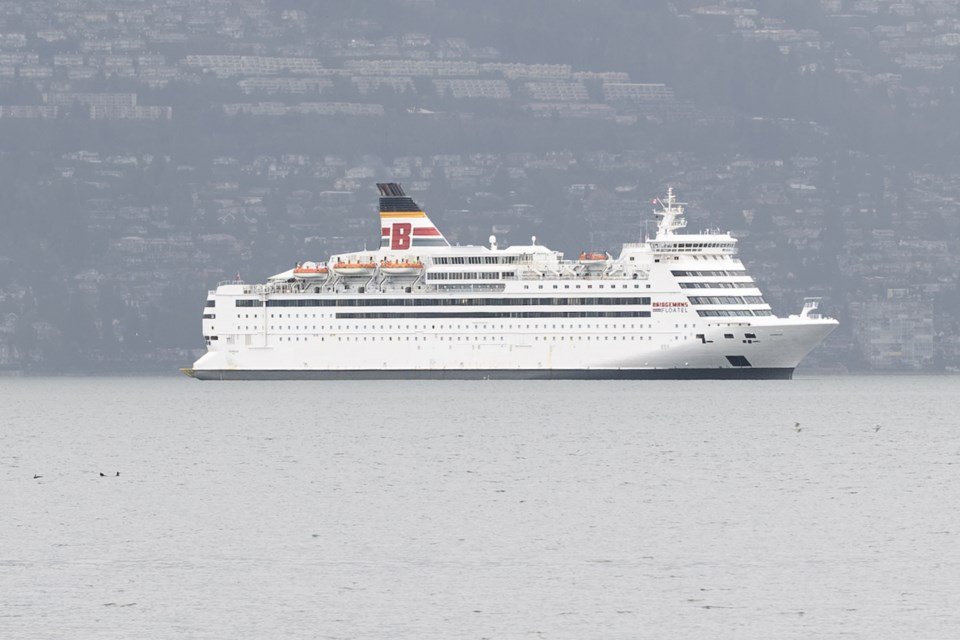
Woodfibre LNG Limited Partnership and its general partner, Woodfibre LNG General Partner Inc., have launched a civil lawsuit against the District of Squamish, its Mayor, and members of Council.
The civil action, filed in the British Columbia Supreme Court this week, seeks financial damages and alleges a sustained, unlawful campaign by the municipal government to intentionally delay or halt the $8.8-billion liquefied natural gas (LNG) project, despite it having received all requisite approvals from Provincial, Federal, and Squamish Nation authorities.
The company asserts that the District systematically misused its municipal powers for the improper purpose of obstruction, claiming that the “true motivations” of the District Council have consistently been to “delay or stop the Project by any means available.”
The lawsuit specifically targets the adoption of an allegedly illegal major industry tax rate and points to numerous delays in the permitting process for crucial infrastructure.
Woodfibre LNG’s project, located seven kilometres southwest of the District at the former pulp mill site, is currently under construction and scheduled to be operational by 2027. The District has yet to respond to the claim.
The ‘WLNG Tax’: Allegations of Unlawful Taxation:
A core component of the claim centers on the District’s handling of property taxation for major industry. Woodfibre LNG contends that the District adopted an unlawful major industry tax rate in 2025, specifically designed to target the project, causing an adverse financial impact while the facility is still under construction and not yet generating revenue.
The specific concerns raised by the lawsuit include:
The District’s 2025 Property Tax Rates Bylaw set the Major Industry mil rate at $125.000 per $1,000 of Taxable Assessed Value. This exceptionally high rate resulted in Woodfibre LNG facing an estimated tax bill of over $1.85 million in 2025 for its properties, which had just been classified as Major Industry by BC Assessment, the claim notes.
The lawsuit highlights that the 2024 Tax Rate Report explicitly referred to the proposed Major Industry Rate as “the WLNG Tax” and recommended the high rate to “achieve adequate taxation from WLNG.” The plaintiffs use this internal terminology as evidence that the tax rate was specifically calculated and adopted to target their project.
The lawsuit says council discussions confirmed the intention to use the revenue generated solely from this high Major Industry Rate, approximately $1.05 million, to fund four additional RCMP officers purportedly deemed necessary due to the Woodfibre LNG and Fortis Eagle Mountain Pipeline projects. The company argues this was a way to force the project to pay an excessive share of the tax.
Woodfibre LNG previously filed a separate petition for judicial review of the 2025 Tax Rate Bylaw on June 6, 2025, challenging the bylaw’s validity.
Delays and obstruction in permitting
The Notice of Civil Claim outlines a series of incidents that, taken together, are alleged to demonstrate a systemic course of conduct intended to frustrate the project’s development.
The most costly incident cited involves the District’s refusal to issue a TUP for the Floatel, a temporary floating worker accommodation vessel. Despite the Floatel receiving environmental and operational amendments and approvals from the Provincial Environmental Assessment Office (EAO), the Canada Impact Assessment Agency, and the Squamish Nation, Council defeated a motion to approve the TUP in April 2024, overriding staff recommendations.
Due to the delay, Woodfibre LNG claims it was unable to use the Floatel, forcing it to spend over $7 million in rental fees and direct charges for the vacant vessel, in addition to daily costs of approximately $65,000 for alternative worker housing and transportation.
Temporary Construction Permits Delayed
The company alleges significant delays in obtaining essential building permits for temporary modular construction trailer structures, including offices and a lunchroom.
Woodfibre LNG submitted the building permit applications between August and September 2023, but the permits were not finally issued until April 2025—a period of over 600 days, the claim says.
During this time, the District allegedly made numerous, repetitive, and time-consuming requests for updates and documentation, some described as “clerical in nature,” regarding architectural drawings, site plans, and various hazard assessments (e.g., Flood, Debris Flow, Coastal Flood), resulting in a major impact on the construction sequencing.
The delay, the lawsuit claims, required the company to modify its construction resource plans and resulted in over $350,000 in rental fees for the unused modular trailers.
Impeding Floatel 2 and Permanent Building Approvals
The lawsuit further claims that the District has continued its pattern of obstruction. It alleges improper conduct and the exercise of jurisdiction that “exceeds its jurisdiction” regarding the TUP for a second floating worker accommodation unit, despite the company anticipating all other major government approvals.
The company further alleges that the District improperly attempted to impose new landslide-hazard assessment requirements on its permanent buildings, including its Operations and Control Building.
Woodfibre LNG argues these assessments are not required under the District’s Official Community Plan or related bylaws. It says it submitted the requested documents anyway to avoid further delays, but characterizes the requirement as another example of overreach intended to slow the project.
Woodfibre LNG is seeking general damages for misfeasance in public office, special damages for project delays and increased costs, as well as punitive, aggravated and exemplary damages, along with legal costs tied in part to its ongoing judicial review of the 2025 tax rate.
The company argues the District’s actions have led to lost and delayed profits, higher construction expenses and exposure to what it describes as “illegally high property taxes,” alleging the municipality’s conduct was “wanton, egregious and high-handed.”





As a recent resident of Squamish I cannot disagree with Woodfibre. The Squamish council appears intent on a green socialist agenda. If the council was responsive and willing to work with companies and residents we could have a community centre that is open, better services and a vibrant town for all to enjoy. Instead the mayor does not even acknowledge emails, I sent him one. And we waste money and time on things like a security guard in the public library.
Exactly!
Good call Woodfibre LNG!!!For everyone from the public who is following this project, it is completely obvious that the liberal-minded council in last several years did exactly what the lawsuit aleges.
I alone, have left at least a dozen comments here, pointing the exact issues.
Now, if the District loses the case, let’s publicly hold those counselors that are always the stoppers (not all of them are, but the voting mayority is) fully responsible, make them pay from their pockets ALL lawsuit expenses, and save the taxpayers’ money for use on true, based and needed projects/upgrades in the community…